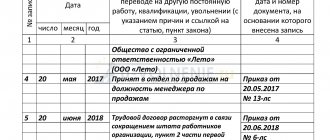By borrowing a drill from a neighbor or, on the contrary, giving him our charger for a dead car battery, we ourselves, without knowing it, enter into a contractual relationship, namely, we unwittingly enter into an agreement for free use (sample). That is, we do not take money for it and do not receive any material benefits.
But what about something whose price can be significant? For example, if a car or apartment is transferred for use. In this case, it is still recommended to draw up a free contract.
Features of the agreement
Such an agreement is also called a loan. Both terms can be used. According to it, one individual - called the Lender - transfers to another - the Borrower - any thing for temporary use without charging a fee for it. That is, free of charge. The list of such things is huge: from the already mentioned drill to an entire factory. The main condition is the non-consumability of the transferred item. In other words, so that the latter does not change its properties and does not disappear during use.
Thus, food products, gasoline and other fuels and lubricants, semi-finished products and the like are not eligible for loans.
The lender is either the owner of the thing being transferred or his authorized representative. According to the law, the owner (proprietor) of a thing (property) has the right to dispose of it at his own discretion: put it up for sale, donate it, and, among other things, transfer it to another individual for free use. Any legally capable individual can act as a borrower. The main difference between this agreement and others is the gratuitousness of the transaction itself, where the owner does not receive any material preferences.
So, as mentioned above, the lender transfers a specific thing to the borrower free of charge and temporarily, and the latter undertakes to return it in the same condition (taking into account reasonable wear and tear).
If the agreement does not mention gratuitousness, then, by default, it is considered that a lease agreement (lease agreement) has been concluded.
How can the gratuitous use of property result?
Letters from our readers often describe the following situation. An organization uses premises or other property owned by another company for free, either without concluding any agreement at all (for example, rent, etc.), or under a gratuitous use agreement (fixed or unlimited). I would like to warn you about the possible negative tax consequences of such use .
What will it cost you?
The fact is that the free use of property entails the receipt of non-operating income from the gratuitously received right to use the property <1>. This income is calculated by estimation according to Art. 40 Tax Code of the Russian Federation. And if you do not take it into account when calculating the tax base for income tax or tax under the simplified tax system <2>, then the tax authorities, having discovered this state of affairs, will do the following:
- additional income tax will be charged (tax paid in connection with the application of the simplified tax system) on the amount of such income, calculated based on the prices at which similar property is rented out <3>; — the corresponding penalties will be charged <4>; — will be fined for failure to pay income tax (“simplified” tax) in the amount of 20% of the amount of unpaid tax <5>.
Attention! Anyone who provides their property for free use may also have problems. Firstly, he does not have the right to charge depreciation on such property <6>, and secondly, he may be charged additional VAT on the market rental value of similar property <7>.
This was confirmed to us by the Federal Tax Service of Russia.
FROM AUTHENTIC SOURCES
MELNICHENKO ANATOLY NIKOLAEVICH - State Councilor of the Russian Federation, 1st class
“When conducting on-site audits, tax authorities pay special attention to the legal basis for the taxpayer’s use of property, property rights, works and services of other persons in his activities.
If an organization has received from another organization the right to use its property (for example, an office) free of charge, then in this case it is obliged to include in the tax base the amount of non-operating income determined on the basis of market prices for the rental of identical property excluding VAT. This position is also shared by the Presidium of the Supreme Arbitration Court of the Russian Federation <8>.”
All of the above consequences will also occur when you received the right to use the property free of charge from your founder, whose share in your authorized capital is more than 50% <9>. Indeed, for tax purposes, income in the form of property received free of charge from the founder, and not property rights <10>, is not taken into account.
The only ones who should not take into account gratuitously received property rights as income for profit tax purposes are non-profit organizations that use state and municipal property free of charge to conduct statutory activities <11>.
When to recognize “gratuitous” income
As for the date of recognition of income for the gratuitous use of property, for organizations using the accrual method, everything is more or less clear: they must recognize such income during the entire period of use of the property at the end of each quarter (month) <12>. By the way, many simplifiers do not want to recognize income in the form of a property right received free of charge, since they actually do not receive any money and the moment of recognition of income in such a situation is not determined.
This position is wrong. After all, income is not only the actual receipt of money, but also the receipt of other property or property rights <13>. Moreover, non-operating income for simplifiers is taken into account in the same manner as for organizations applying the general taxation regime <14>. And for the latter, the property rights received free of charge are directly listed among their income. If we speak the language of economics, then the income (economic benefit) from the free use of property consists of the saved money that the simplifier would have paid if he had used the property for a fee.
And here is what the Federal Tax Service told us about the date of recognition of income by simplifiers for the gratuitous use of property.
FROM AUTHENTIC SOURCES
MELNICHENKO ANATOLY NIKOLAEVICH, State Advisor of the Russian Federation, 1st class “For taxpayers using the cash method, the date of receipt of income in the form of a gratuitously received right to use property is: <or> the date of signing of documents confirming the transfer of property rights; <or> the day of actual receipt of property rights to gratuitous use of property.”
It turns out that if there is a document that indicates for what period the property is transferred, then you need to immediately take into account the income for the entire period of use of the property. If there is no such document, then income must be determined in each reporting period based on the rental cost of similar property.
How can you mitigate unpleasant consequences?
It turns out that when using property free of charge, it is better not to have any documents at all, from which it would be clear how long you have been using this property. In this case, you will at least be able to tell the tax authorities that “you just moved to this office a week ago.” Thus, the taxable income imputed to you will be small and you can get off with what is called a small loss. But keep in mind that the tax office can prove the opposite, namely that you have been using the premises for a long time. Inspectors may interview your neighbors in the office building, or you could easily be given away by, for example, an old newspaper advertisement with your address. And then additional taxes and other troubles cannot be avoided.
But even in this case, it’s too early to give up. You have many chances to challenge in court the correctness of the tax authorities’ determination of the market rental price for similar property, on the basis of which they determine the income received <15>. The fact is that they are not often able to find identical or homogeneous objects to compare prices, especially if they are real estate. Legal disputes on this issue that the Federal Tax Service would win are rare. And even then this happens when the taxpayer does not try to challenge the correctness of the tax authorities’ determination of the market price <16>.
WARN YOUR MANAGER
If the tax authorities become aware that your company is using someone else’s property for free, they will certainly charge additional taxes on the money saved on rent, and will also fine your organization.
* * *
So, gratuitous use of property is akin to free cheese, which, as you know, only comes in a mousetrap. This may lead to additional tax risks. Therefore, before you rejoice at the opportunity not to pay, for example, for the premises you occupy, adequately assess all the possible negative consequences of such a situation. Still, it is safer to conclude a lease agreement, even with a small rent, which you will include in expenses, and sleep peacefully than to flinch from every call from the Federal Tax Service.
——————————- <1> clause 8 of Art. 250 of the Tax Code of the Russian Federation, Letters of the Ministry of Finance of Russia dated December 11, 2009 N 03-03-06/1/804, dated 02/04/2008 N 03-03-06/1/77 <2> Letter of the Ministry of Finance of Russia dated October 31, 2008 N 03-11 -04/2/163; Resolution of the Federal Antimonopoly Service of the Eastern Military District dated July 29, 2008 N A29-9662/2007; FAS SZO 01.10.2008 N A44-96/2008; FAS North Caucasus Region dated October 22, 2008 N F08-6323/2008 <3> clause 8 of Art. 250, paragraph 1, art. 346.15, paragraph 1 of Art. 39, paragraph 3, art. 40 Tax Code of the Russian Federation <4> Art. 75 Tax Code of the Russian Federation <5> clause 1 art. 122 Tax Code of the Russian Federation <6> clause 3 art. 256 Tax Code of the Russian Federation; Letter of the Federal Tax Service of Russia for Moscow dated October 31, 2007 N 20-12/104582 <7> sub. 1 clause 1 art. 146, paragraph 2 of Art. 154, art. 40 Tax Code of the Russian Federation; Letter of the Ministry of Finance of Russia dated 05.05.2009 N 03-07-11/133; Resolution of the Federal Antimonopoly Service of the Eastern Military District dated 02/18/2008 N A31-567/2007-15 <8> clause 2 of the Information Letter of the Presidium of the Supreme Arbitration Court of the Russian Federation dated 12/22/2005 N 98 <9> Letters of the Ministry of Finance of Russia dated 03/14/2008 N 03-05-05-02 /12, dated January 24, 2007 N 03-11-05/10 <10> sub. 11 clause 1 art. 251 Tax Code of the Russian Federation <11> subp. 16 clause 2 art. 251 Tax Code of the Russian Federation; Letter of the Ministry of Finance of Russia dated March 19, 2010 N 03-03-06/4/24 <12> clause 1 art. 271, art. 285 Tax Code of the Russian Federation <13> clause 2 art. 272, paragraph 1, art. 346.17 Tax Code of the Russian Federation <14> clause 1 art. 346.15 of the Tax Code of the Russian Federation <15> see, for example, Resolution of the Federal Antimonopoly Service of the Eastern Military District dated July 29, 2008 N A29-9662/2007; FAS SZO dated 01.10.2009 N A42-7203/2008 <16> see, for example, Resolution of the FAS SZO dated 31.03.2009 N A33-4100/08-F02-1119/09
First published in the journal "Glavnaya Ledger" N 08, 2010
Unlock access to the private part of Clerk with a Premium subscription. Get hundreds of webinars and online courses, unlimited consultations and other proprietary content for accountants.
Hurry up to subscribe with a 20% discount until October 15, 2021. Read more about “Premium” here.
Transfer conditions
Items transferred under the contract must be in good condition, suitable for the intended use and accompanied by all the required documentation and accessories. Otherwise, the borrower has the right to either request the attached documents and accessories, or terminate the transaction (with the lender paying the costs incurred by the other party).
If the lender refuses to provide the thing itself after the conclusion of the transaction, the other party has the right to demand termination of the contract and compensation for costs incurred as a result of this refusal.
If defects are detected in the transferred item, the borrower has the right:
- demand that defects be eliminated free of charge;
- eliminate it yourself and demand reimbursement of expenses incurred;
- demand early termination of the contract with reimbursement of expenses incurred.
The transfer of an item from the lender to the borrower is recorded by signing the transfer act.
Use and return
The person who has received the item for loan use is obliged to keep it in working order and pay for its maintenance. And not only carry out routine maintenance work, but carry out major repairs. Except in cases where the contract specifically specifies rules for the use of the transferred item that differ from the usual rules.
Risks associated with accidental destruction or damage to the transferred item are the responsibility of the owner, except for the following circumstances in which the item was destroyed or damaged, namely:
- the item was used for other purposes or in violation of the contract;
- the item was transferred to another person without the knowledge of the owner;
- there was an opportunity to prevent such consequences, but the borrower did not take advantage of it.
Item
Information about the subject of this agreement is stated in the initial paragraphs of the document. In this case, the subject will be non-residential premises. The section about the item should clearly describe the characteristics of such a room, namely:
- indicate at what address it is located;
- indicate whether there is any equipment attached to the premises;
- indicate the number of square meters in the room;
- indicate to whom the non-residential premises belong by right of ownership and whether it is encumbered with the rights of third parties.
So the item clause looks like this:
The Lender transfers the right to use free of charge to the Lender the non-residential premises located at the address: Kurgan region, Kurgan city, Burova-Petrova street 72B. The total area of the premises is 50 (fifty) square meters. According to an extract from the register of real estate of the Russian Federation, the Lessor is the owner of the premises. The intended purpose of the rented premises is retail trade in non-durable goods (clothing). This agreement is concluded for an indefinite period.
Dispute Resolution
This section provides information on the procedure for resolving disputes between the parties. As part of the agreement, Contractors can specify various conditions, but we will highlight those that apply most often:
All disagreements that arise regarding the fulfillment of their obligations under the contract are resolved through negotiations between the parties. If during the negotiations the parties do not reach a common conclusion, disputes will be resolved in court.
At the end of the document, the signatures of the parties are placed, and the agreement is considered concluded.
Nuances when filling out
The conditions for transferring non-residential premises for use must be specified. The transaction is free of charge, so no rental payments can be established. But all issues related to the costs of maintaining the property should be discussed. If this is not done within the framework of the contract, then the parties are unlikely to be able to avoid disputes on this issue.
An essential condition is also a description of the object transferred by the owner to the tenant for use. It must be detailed so that it is possible to establish that it belongs to real estate non-residential property.
Also determine the fate of improvements that can be made during the period of use of the premises: separable and inseparable. If this is not specified, then the inseparable improvements remain at the disposal of the owner without the possibility of receiving compensation for them.
Rights and obligations of the parties
By agreeing to the terms of the agreement, the tenant acquires certain rights in relation to the non-residential premises:
- the right of use in accordance with the purposes specified in the contract (i.e. with written agreement with the owner), the tenant is obliged to notify the owner in writing about all changes;
- the right to terminate the contract early for good reasons or at your own request. This right is the same for both parties;
- the right to compensation for losses when the initiator of termination of the contract is the owner, and the tenant suffers losses, for example, from an interrupted production process.
Here you can specify the owner’s rights to conduct inspections in order to clarify in which direction the premises are used. If the terms of the agreement are violated, he has the right to initiate termination of the contractual relationship.
The tenant's responsibilities are:
- careful treatment of the property received under the agreement;
- payment for utility services (for the maintenance of the premises);
- carrying out routine repairs;
- return of the object within the period established by the clause of the contract.




